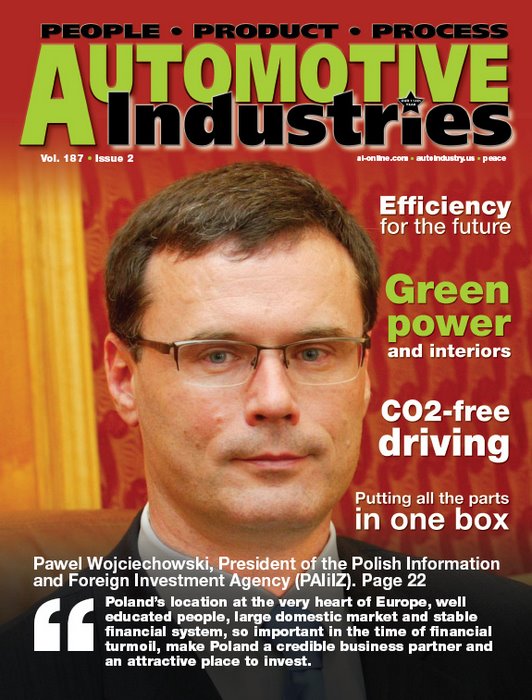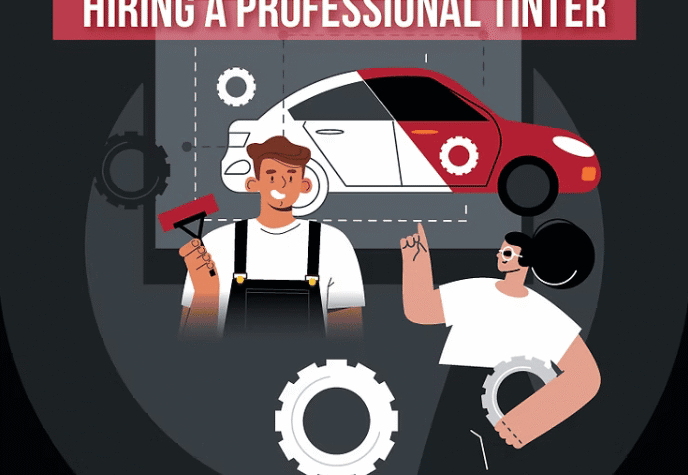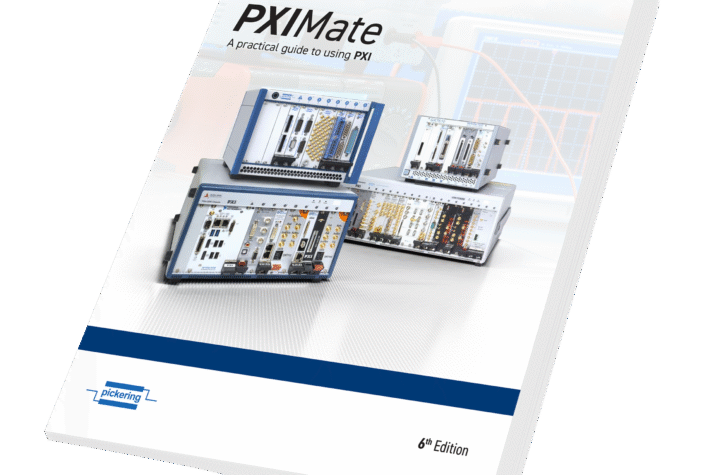
The Polish automotive industry is a well-established one – the country is known for auto component production. This includes engines, rubber parts, car seats and upholstery, auto electronics, electrical cables and braking system parts. Polish car parts can be found in Mercedes, Nissan, Opel (GM), Porsche, Toyota, Volkswagen, Isuzu, Fiat, Citroen, Honda, Peugeot, Volvo, BMW, Rolls-Royce, Lamborghini and Ferrari vehicles.
According to a report by consultancy firm Ernst & Young, Poland is one of the best places to locate new factories. What makes Poland an attractive investment destination is its low labor costs, a highly qualified work force, and its geographical location in Europe. The country has a network of over 700 sub-contractors, of which 320 have the ISO/TS 16949 quality certification.
In the last few years, automotive companies like tire-maker Michelin for example, has invested in expanding production in Poland. Some new investors include Grupo Antolin, TRW, Lear, Nord, Voss, NTK, Daicel, NGK and Stahlschmidt & Maiworm. “Each investment in the motor industry leads to the development of further companies and the emergence of new jobs. Today there are many automotive sub-contractors, utilizing both foreign and Polish capital, including 4 car engine plants. Indeed engines are steadily becoming the Polish speciality,” says the Polish Information and Foreign Investment Agency or PAIiIZ. PAIiIZ was established on the 24th of June, 2003, as a result of the merger of the State Foreign Investment Agency (PAIZ) and the Polish Information Agency (PAI).
PAIiIZ’ mandate is to help foreign investors in Poland. It also helps promote Polish goods and services overseas. “In order to provide the best possible service to investors we’ve established a network of Regional Investor Service Centers across Poland, which have as their goal improvement of the quality of a region’s investor services, also to ensure access to the latest information – such as, the latest investment offers and to regional micro-economic data. These specialist bureaus hire professionals that have been trained by PAIiIZ and are financed by local authority funds. Another of their task is to work as links between the investors and local authorities,” says the organization.
One of the sectors where PAIiIZ is trying to attract investment is the automotive industry. Poland has been producing cars since the 1920’s. After World War II, the automotive industry which was shattered during the war was rebuilt. This started initially at Starachowice, where the production of trucks began and then in Warsaw were the FSO plant began producing passenger vehicles and finally in Lublin where delivery vans were made.
Since then, the flow of direct foreign investments to the automotive sector has led to the dynamic development of the sub-contractors segment. Giants from the motor industry like General Motors, Isuzu, MAN, Michelin, Toyota, Volkswagen and Volvo, have encouraged many sub-contractors to shift production capacity to Poland, says PAIiIZ.
Poland’s geographical location between the wealthy consumer markets of Western Europe and the dynamically expanding Eastern European markets makes it an ideal center for production. The country has three sea-ports on the Baltic coast, which offer connections to Europe’s most important ports According to figures, investment in Poland provides access to the 300 million-strong Western and 250 million-strong Eastern European markets.
Apart from the export potential of goods made in Poland, the country also has a strong, vibrant domestic market. Poland is one of the fastest growing economies in Europe and according to estimates, in 2007; the Poles spent 21 billion Polish Zloty or PLN on cars. This was one third more than what was spent in 2006.
Automotive Industries spoke to Pawel Wojciechowski, President of the Polish Information and Foreign Investment Agency (PAIiIZ).
AI: How attractive is the investment climate in Poland today?
Highly attractive. Poland’s location at the very heart of Europe, well educated people, large domestic market and stable financial system, so important in the time of financial turmoil, make Poland a credible business partner and an attractive place to invest.
AI: What are some of the automotive investors that have entered the country in the recent past? Please tell us about the Toyota Boshoku Corporation’s investment in Poland.
In 2008, Keiper decided to build a factory in Skarbimierz, Ford will start the production of new Ford Ka in Tychy, the investment decision was taken also by Hoerbriger Automotive Komfortsysteme, ADPF and Kirchhoff Automotive.
In September Toyota Boshoku Corporation announced the establishing of an automotive interior parts manufacturing company, TBAI Poland in Nowogrodziec. This is the first Toyota’s seat frame manufacturing plant in EU. The products will be delivered to the seat-assembling bases of Toyota Boshoku’s group companies in Europe. The TBAI Poland plans to employ 440 people.
AI: Tell us a little about the Ernst & Young report on the attractiveness of Poland as an investment destination.
This is the sixth report of E&Y concerning the European investment attractiveness. It shows that Poland is second in the ranking of top 20 countries in terms of job creation and the first European location considered for new investment or expansion projects.
AI: What are some of the factors that make Poland attractive as an investment destination to automotive manufacturers?
The automotive industry tradition is well developed in our country. Poland is a major force in the production of the rubber parts, car seats and upholstery, auto electronics, electrical cables or braking system parts. Engines are steadily becoming the “Polish specialty”. The items produced in Polish factories are of high quality.
Polish car parts can be found in Opel, Toyota or Volkswagen, but also in Rolls-Royce, Lamborghini and Ferrari.
Furthermore, the human capital which is one of the most unique values in Poland makes our country an excellent location for the automotive investments: highly qualified workers educated at excellent technical institutes, together with a network of over 700 sub-contractors.
Thanks to the location at the very heart of Europe, the close cooperation with the motor manufacturers and plants in neighbouring countries is developing year after year. The value of the exported cars and parts manufactured in Poland grows – not only to Western Europe, but also to Russia and the Ukraine.
That is why the manufacturers already present on our market have taken steps to rebuild existing plants, like for example Michelin and many others, such as General Motors, Isuzu, MAN, Michelin, Toyota, Volkswagen and Volvo have inspired the sub-contractors to transfer production capacity to Poland.
AI: How confident are you about Poland’s ability to attract investment in the current financial turmoil? How will PAIiIZ’ strategy change in order to attract new investments?
The present situation can have the influence for reinvestments or mergers and acquisitions. The greenfield projects, one of the main forms of investment serviced by PAIiIZ should stay at the similar level. However, the proportion of investments can change: today, we have definitely more projects from the production sector. I think that in the near future there will be more FDI projects in various services sectors, such as BPO, shared service centers or R&D. Thanks to its human potential, Poland will also become the major destination for foreign direct investment in the service industries.












More Stories
Sonatus – The industry is shifting gears to software
Cybord warns of dangers of the stability illusion
HERE building trust in ADAS systems